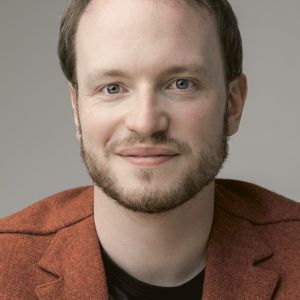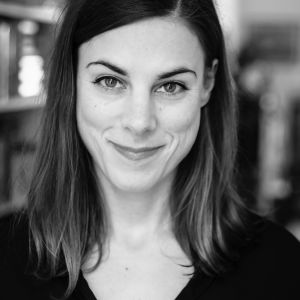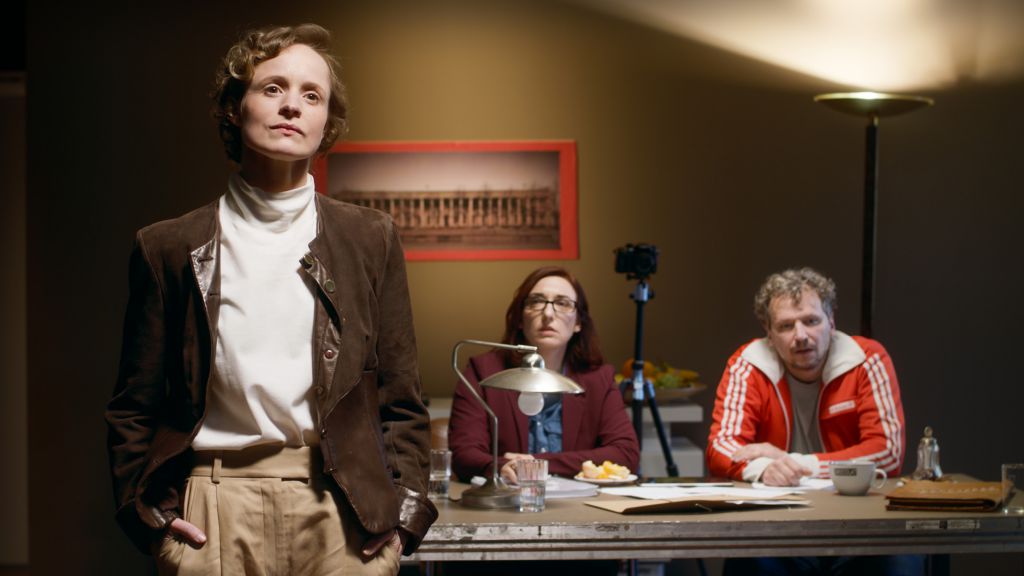When actors, directors, and producers meet, casting calls are frequently the reason. As was the case this time—with one difference: to ring in the new year, Avia Seeliger met with Ercan Karaçayli, Daniel Holzberg, and Lena Weiss to discuss the phenomenon of typecasting.
Daniel Holzberg studies film directing at Film Academy Vienna and recently made the short film Triumph des Schauspielers [Triumph of the Actor]. Ercan Karaçayli is the actor who played the main character in Holzberg’s film. Lena Weiss, who was also at the Film Academy, founded her production company Glitter & Doom while still a student.
Just what is typecasting, and whom does it affect?

Daniel Holzberg (DH): Typecasting is a very broad topic, but it’s essentially about people getting cast based on specific characteristics. The first time I heard the term, it was in reference to when TV series or a soap operas put actors in stereotypical cubbyholes for genre-related reasons. And in the context of our film Triumph des Schauspielers, it’s a clear reference to the tendency to cast people from migratory backgrounds in accordance with certain stereotypes—in our case, with that of the terrorist or drug dealer. At some point, I’d noticed how a series about secret agents protecting the United States from terrorists really just does the same thing every season. So we tried to make a theme of that in our film in order to talk about representation.
Ercan, you play the main role in Triumph des Schauspielers. Is typecasting something you think happens above all to actors of colour?

Ercan Karaçayli (EK): Short answer: yes, one definitely does get that feeling. The point is, of course, to practice one’s profession, to act, and to have fun doing what you do or at least make a living at it. But one can see how, for the most part, zero emphasis is placed on employing diverse casts instead of constantly just reproducing clichés, and the result is that you just don’t get that much work, which isn’t so great. Besides which, I think diversified casts are way more interesting—and it’s not for no reason that Netflix, Amazon Prime, and the rest have made that a priority. Which is to say that if they didn’t pay as much attention to diversity in their casting as they do, they wouldn’t be as profitable as they are.
What do you think, Lena, as a producer? Is this the fault of the casting process itself, or more a matter of the roles that get written?

Lena Weiss (LW): I think it’s due more to the roles that get written. Ultimately, the casting process involves collaboration between multiple departments—and by the time that rolls around, a lot tends to have already happened: the screenplay, decisions on subsidies and on the production and directing teams, etc. The characters get discussed, and then certain people get invited and cast in certain roles. Stereotyped roles are also a big topic for women, by the way, not just for people of colour. I know women who never get interesting roles due to their looks because all that’s needed is an object of passionate love. Nobody thinks to give them “difficult” or “deeper-reaching” roles—not least because such roles are still too rare. Particularly in Austria, we’ve still got quite a ways to go—especially in the development and screenwriting processes—before we reach a point where things will hopefully no longer be that way.
How diverse are our screenplays in general? And when you say that work needs to be done in terms of screenwriting, how do you see that ideally happening?
LW: The most important thing is to give young authors a chance, because I think that across all departments, the younger generations differ mentality-wise from many of those who’ve spent decades in the industry. They have an entirely different self-understanding, different perceptions, and a different perspective. What’s more, the young filmmakers themselves are more diverse than most of the already-established ones. It terms of awareness-raising, the past few years have seen more done than ever before. The topic is very present, after all. But even so, the latest edition of the Austrian Film Gender Report put out by the Austrian Film Institute (ÖFI) shows that the larger the budgets get, the less progress we see both in front of and behind the camera.
Are there, conversely, roles that absolutely have to be cast with certain people? Roles where it’s said: “In this case, exactly which person we put up there really is important!”
DH: I can’t think of any, spontaneously. But of course, we’ve talked a lot now about writing. And when I write, I try to pay attention to a person’s essence, to their motivation and goals. Though one really could say that the role played by Ercan in the film really does have to be played by him. After all, there really are inequalities and prejudices in casting. And if that’s the topic, then I absolutely would make sure that whenever a film is about individuals who are disadvantaged, those people really do play those roles and contribute their own identities to them.

What’s your take on that, Ercan? Do you see any ambivalence in such demands?
EK: I think that everyone should be allowed to play everything. But I’m also from a different generation, and there are lots of things I just can’t imagine. My brain only has room for so much, after all. But for example: Who should play refugees in a cinematic film that perhaps includes a critical take on all the various political measures? Decisions like those aren’t simple. But if you’re developing material about Europe, you certainly can ask: How has society come to be structured, by now, and how do we live together with one another? A diverse cast shouldn’t be some kind of sensation—this type of mixing needs to become pretty standard. And the topic of women, which was already mentioned, is something I think is absolutely right and important. At acting schools, for example, it’s the case that more men get admitted because society simply does give rise to more male roles.
This whole debate is pretty strongly inspired by what’s going on in the United States. What elements of that have we picked up on here, in Austria?
LW: In her speech at the Oscars, Francis McDormand said two words: “Inclusion rider”. And nobody—at least not in this country—knew what that meant. But the interest group Film Fatal subsequently produced a German translation of the inclusion clause she was talking about and made it available in Austria. Production companies can now sign it, obligating themselves to adhere to these guidelines and to communicate that publicly, as well. And then there’s the ÖFI’s Gender Report, the second edition of which has just come out. They plugged in lots of numbers and data there to produce a scholarly evaluation of what’s happening both in front of and behind the camera. Because after all, the point isn’t just to get a diverse range of actors cast but also have film teams be diverse as possible.

